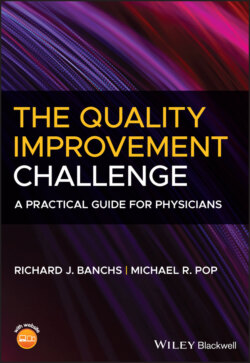Читать книгу The Quality Improvement Challenge - Richard J. Banchs - Страница 59
“Thanks, But No Thanks”
ОглавлениеOne of the reasons most people hesitate to become part of a QI project is the perception that project activities will increase the workload of an already resource‐stretched front line. In some organizations, QI projects have historically resulted in nothing more than additional work requirements for the front line to negotiate. Be careful when pulling together a group of stakeholders who are already struggling with challenging workloads in order to form your project team. Frontline professionals need to have the appropriate resources and see the value in participating in a QI project. Here are some suggestions to encourage participation in QI projects:
Critically evaluate the time demands you are placing on those involved. Create as close of a timeline as you can.
Make sure participating members get the appropriate support from their supervisors. People need time away from clinical responsibilities for project activities. “Improving after five o’clock” is not the best strategy.
Share realistic estimates of the time required to participate in the project with team members and their supervisors.
Adhere to strict professional behavior during project‐related interactions, such as adequately preparing for activities, scheduling meetings for the minimum time necessary to complete activities, and clearly communicating accountabilities and deadlines, etc.
Adopt a flexible approach to the completion of project requirements to accommodate project team members’ needs and conflicts with clinical work.
Avoid wasting project team members’ time by first acknowledging that there is a cost associated with every project‐related activity. Eliminate non‐value‐added project work; make sure team meetings are efficient and achieve their intended goals (see Chapter 26).
